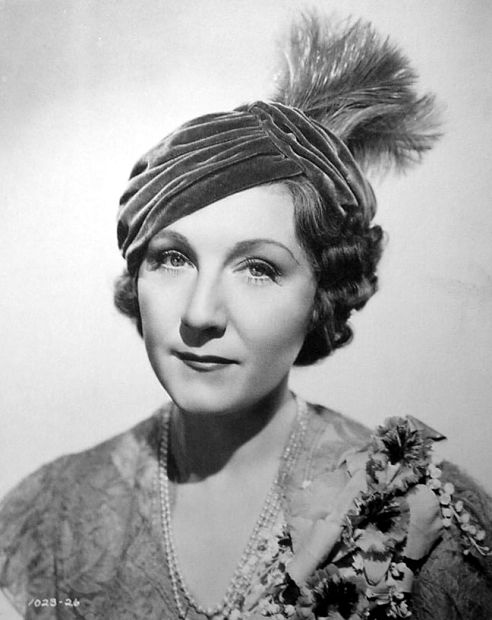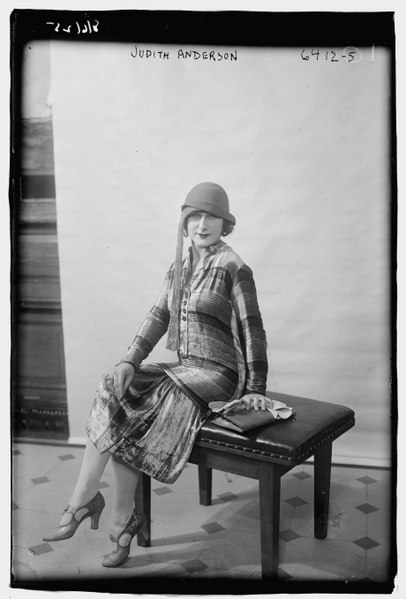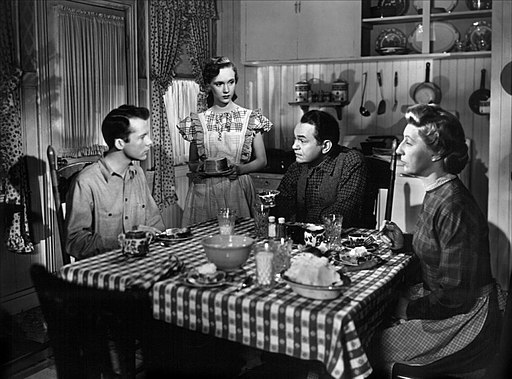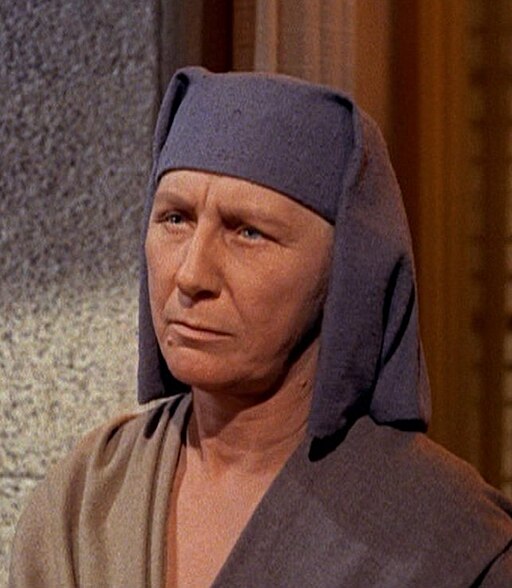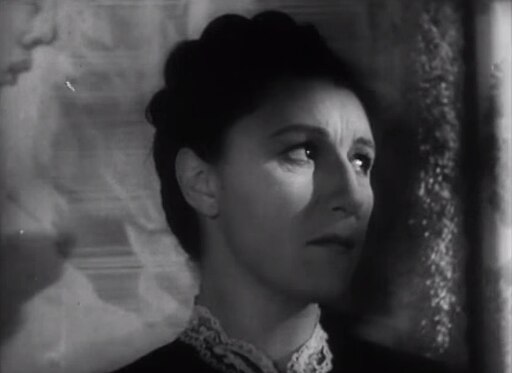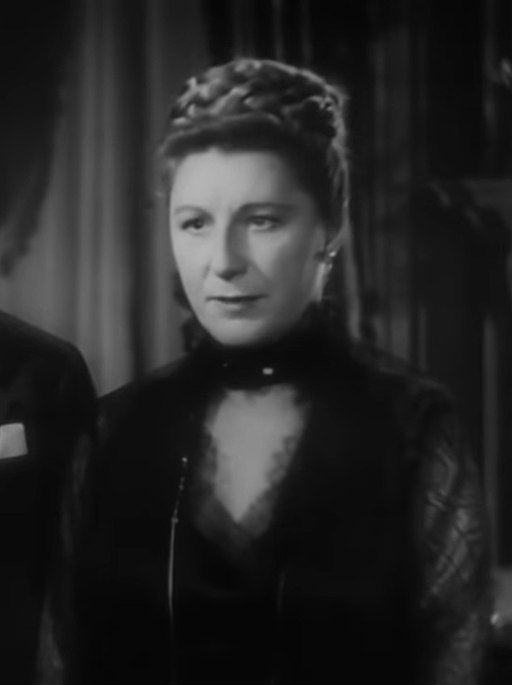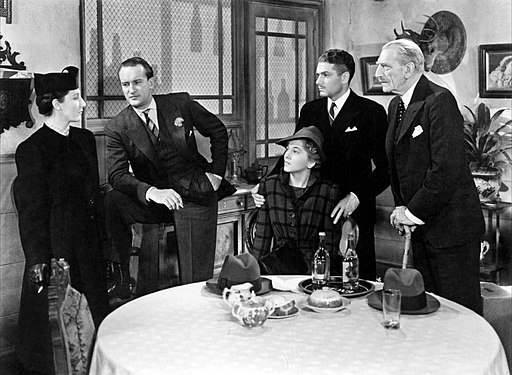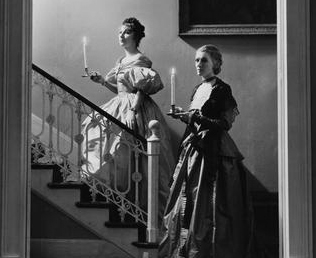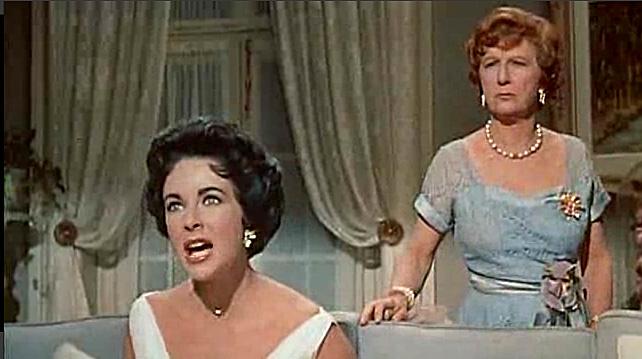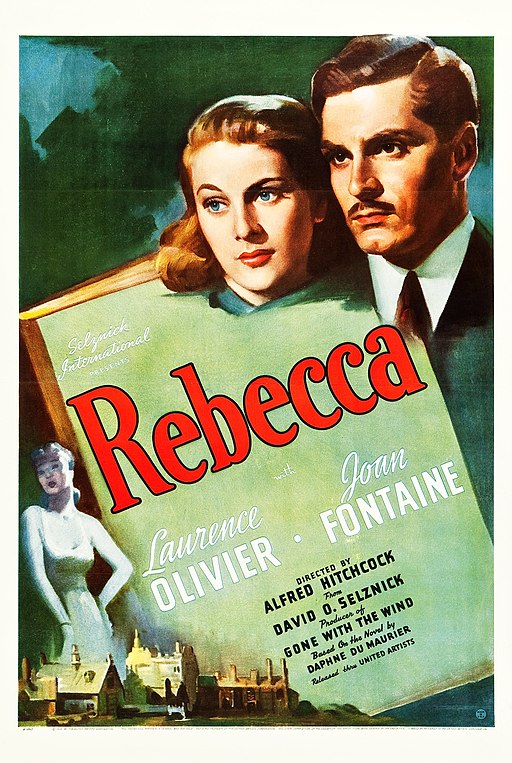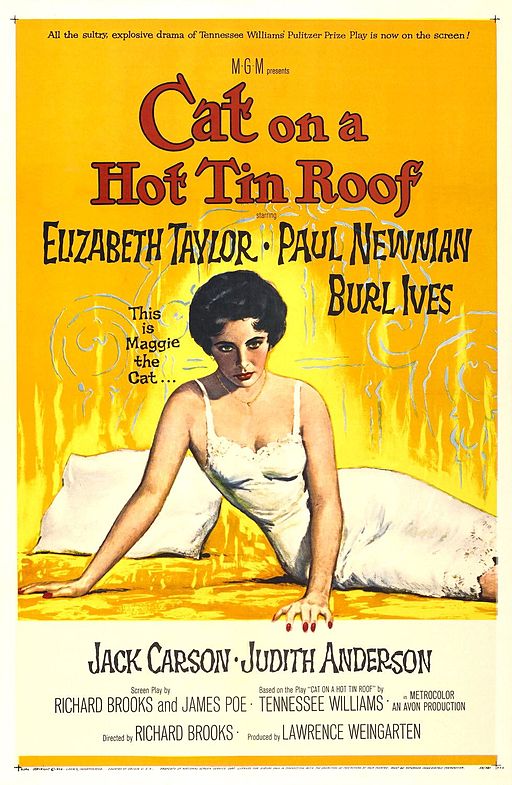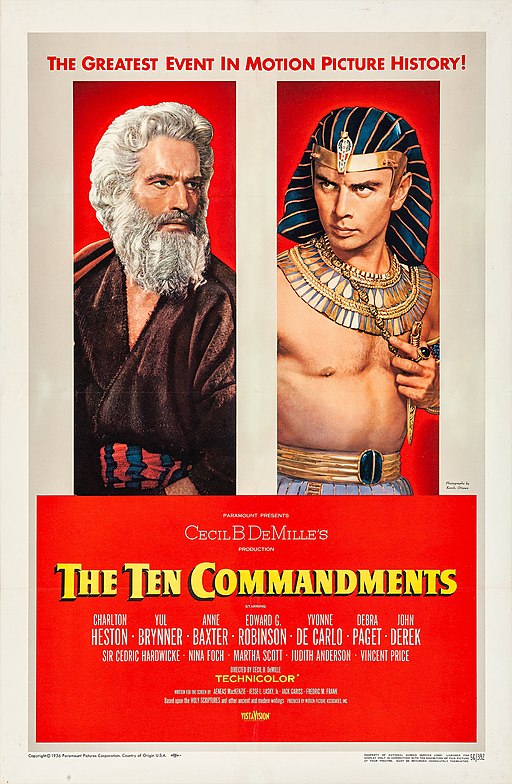Judith Anderson
back| Full Name | Frances Margaret Anderson |
| Stage Name | Judith Anderson |
| Born | February 10, 1897 |
| Birthplace | Adelaide, South Australia, Australia |
| Died | January 3, 1992 |
| Buried | Santa Barbara Cemetery, California, USA |
| Married to | Benjamin Harrison Lehmann (1937 - 1939) - Luther Greene (1946 - 1951) |
| Children | None |
| Notable films | Rebecca (1940) - King's Row (1942) - Laura (1944) - Cat on a Hot Tin Roof (1958) |
Judith Anderson
The Grand Dame of Theatre
Dame Judith Anderson was a distinguished actress renowned for her intense and emotionally rich performances. She transitioned from Australian theatre to Broadway, gaining acclaim for her versatility and depth.
Anderson's portrayal of Mrs. Danvers in Alfred Hitchcock's "Rebecca" (1940) marked a career pinnacle, earning her an Academy Award nomination. Her exceptional talent shone in roles ranging from Lady Macbeth to classical and modern stage characters, leading to a Tony Award for "Medea" (1948).
Related
Judith Anderson (1897 – 1992)
Biography and Overview of her Career
Frances Margaret Anderson, who would later be known globally as Judith Anderson, was born on February 10, 1897, in Adelaide, South Australia. Raised in a culturally inclined family, she developed a passion for the performing arts at a young age. Her early life in Australia fostered a strong appreciation for literature and drama, setting the stage for her future career in acting.
Path to Success
Anderson's journey towards becoming an acclaimed actress began in Australia, but she soon realized that to achieve greater heights, she needed to move beyond her home country. She relocated to New York City in the 1910s, a bold move that marked the beginning of her illustrious career. In New York, she immersed herself in the vibrant theatre scene, honing her craft and gaining recognition for her powerful performances. Her stage presence was compelling, marked by an intensity and depth that captivated audiences.
Breakthrough and Acclaimed Roles
Judith Anderson's breakthrough came with her performance in the play "Cobra" in the 1920s. From there, she went on to star in various productions, both on Broadway and in London's West End. Her portrayal of strong, often tragically flawed characters, became her signature. Anderson's film career also flourished, with her role as Mrs. Danvers in Alfred Hitchcock's "Rebecca" (1940) earning her critical acclaim and an Oscar nomination. She continued to work in both film and theatre throughout her career, demonstrating remarkable versatility and dedication to her craft.
Personal Life and Marriages
In her personal life, Anderson was known to be fiercely independent and private. She was married twice, first to Benjamin Harrison Lehmann in 1937, a professor of English literature. This marriage ended in divorce in 1939. Her second marriage was to theatrical producer Luther Greene in 1946, which also ended in divorce in 1951. Anderson did not have children, and she often channeled her passion and energy into her acting.
Passions and Interests
Apart from her acting career, Judith Anderson had a deep interest in literature and the arts. She was known for her love of Shakespearean plays and often spoke about the impact of classic literature on her life and work. Her dedication to her roles was not just professional but also a personal quest for artistic perfection.
Later Years and Death
In her later years, Anderson continued to act, taking on roles in television and continuing her stage work. She was made a Dame Commander of the Order of the British Empire in 1960, an honor that acknowledged her significant contributions to the performing arts.
Judith Anderson passed away on January 3, 1992, in Santa Barbara, California, at the age of 94. The cause of her death was reported as pneumonia. She was buried at the Santa Barbara Cemetery, leaving behind a legacy as one of the most formidable actresses of her time, remembered for her powerful and nuanced performances.
Judith Anderson interviewed by Charles Higham in 1971:
Analysis of the Acting Style of Judith Anderson:
Judith Anderson's acting style was marked by a compelling blend of intensity, versatility, and a profound emotional depth that made her performances unforgettable. Here's an analysis of her unique style:
Intensity and Commanding Presence
Anderson had a commanding screen and stage presence that captivated audiences. Her ability to portray intense emotions with subtlety and depth was remarkable. Whether she was playing a sinister character like Mrs. Danvers in "Rebecca" or a tragic figure like Lady Macbeth, she brought a palpable intensity to her roles. Her performances often lingered in the minds of viewers long after the final scene.
Mastery of Complex Characters
One of Anderson's hallmarks was her ability to take on complex and often psychologically challenging roles. She had a knack for understanding and portraying the nuances of characters who were troubled, powerful, or morally ambiguous. Her portrayal of Mrs. Danvers, for instance, was a study in controlled menace and obsession, while her Lady Macbeth was both fiercely ambitious and deeply troubled.
Versatility
Anderson's versatility was evident in the wide range of characters she played throughout her career. From Shakespearean tragedies to Hollywood films and television series, she adapted her style to fit the medium and the role. Her ability to move seamlessly between genres and styles is a testament to her broad skill set and her commitment to each character she portrayed.
Emotional Authenticity
Anderson's performances were often noted for their emotional authenticity. She had the ability to convey the inner turmoil or passion of her characters in a way that felt real and relatable. This emotional truth was the cornerstone of her acting style, allowing her to connect deeply with her audience.
Physicality and Voice
Her physicality and use of voice were also integral to her style. Anderson used her body language and facial expressions to convey layers of meaning beyond
the dialogue. Her posture, gestures, and movements were meticulously crafted to enhance her character's psychological state and backstory. Furthermore, her voice was a powerful tool; she could convey a range of emotions through her tone, inflection, and pacing. Whether whispering in a sinister manner as Mrs. Danvers or projecting the ambitious drive of Lady Macbeth, her voice added an extra layer of complexity to her characters.
Subtlety and Restraint
Despite her ability to portray intense emotions, Anderson's style was often marked by subtlety and restraint. She understood the power of understatement and often used minimalistic gestures or expressions to convey deep emotions. This restraint made her sudden outbursts or moments of intense emotion even more impactful.
Classical Training and Theatrical Influence
Anderson's classical training and extensive theatre experience had a significant influence on her acting style. She brought the discipline, precision, and depth of classical theatre to her film and television roles, enriching her performances with a sense of gravitas and authenticity.
Emotional Connection with the Audience
Finally, one of the most notable aspects of Anderson's style was her ability to establish a deep emotional connection with her audience. Whether she was playing a villainous or sympathetic character, she engaged viewers, drawing them into the narrative and making them invest emotionally in her performance.
Significance of her Role in “Rebecca”:
Judith Anderson's performance as Mrs. Danvers in Alfred Hitchcock's "Rebecca" (1940) is not only one of her most iconic roles but also a pivotal point in her career, highlighting her remarkable acting abilities and significantly impacting her legacy in the film industry. Here's an analysis of the significance of this role for her career:
Breakthrough in Film
- Career Transition: Prior to "Rebecca," Anderson was primarily known for her work on stage. Her portrayal of Mrs. Danvers marked a successful transition from theater to film, showcasing her ability to adapt her formidable stage presence to the screen.
- International Recognition: The film brought her international acclaim, introducing her talent to a wider audience beyond the theatre circles.
Acting Prowess
- Complex Character Portrayal: In "Rebecca," Anderson delivered a nuanced performance of a complex character. Mrs. Danvers is a deeply troubled and enigmatic figure, whose obsession and loyalty to the late Rebecca de Winter drive much of the film's suspense and psychological depth.
- Memorable Performance: Her portrayal was both chilling and sophisticated, creating an unforgettable character in cinematic history. Her ability to convey a range of emotions, from subtle manipulation to overt malevolence, was a testament to her acting skills.
Critical Acclaim
- Oscar Nomination: Anderson's role in "Rebecca" earned her an Academy Award nomination for Best Supporting Actress. This recognition cemented her status as a talented film actress.
- Enduring Impact: Her performance is often cited as one of the greatest in film history, particularly in the thriller and suspense genres.
Influence and Legacy
- Influence on Film Villains: Anderson's portrayal of Mrs. Danvers influenced the depiction of female characters, particularly villains, in films. Her ability to create a sense of foreboding and tension without overt violence or action set a new standard for psychological complexity in film villains.
- Inspiration for Future Generations: Her performance in "Rebecca" has been studied and admired by actors and filmmakers for its depth and subtlety, inspiring future generations in the craft of acting.
Broadening of Career Opportunities
- Expanded Range of Roles: Following "Rebecca," Anderson was offered a wider range of roles in both film and television, allowing her to explore various character types and genres.
Awards and Recognition:
Academy Awards (Oscars)
- Nominated: Best Actress in a Supporting Role for "Rebecca" (1941)
Primetime Emmy Awards
- Won: Outstanding Single Performance by an Actress in a Leading Role for "Hallmark Hall of Fame" episode "Macbeth" (1961)
Tony Awards
- Won: Best Actress in a Drama for "Medea" (1948). This was a significant recognition of her stage work, particularly her portrayal of the titular character in the Greek tragedy.
Other Honors and Awards
- Dame Commander of the Order of the British Empire (DBE): In 1960, Judith Anderson was appointed a Dame Commander of the Order of the British Empire for her services to the performing arts. This is one of the highest honors granted for significant contributions in this field.
- Hollywood Walk of Fame: Anderson has a star on the Hollywood Walk of Fame, awarded for her contributions to the motion picture industry.
Special Recognitions
- In addition to these awards, Anderson's career was marked by numerous other accolades and honors, reflecting her impact on the performing arts. She received several honorary degrees and was celebrated in various retrospectives and tributes for her contributions to theatre and film.
Movies starring Judith Anderson:
1933 - "Blood Money"
- Synopsis: In this pre-Code crime film, Anderson plays a minor role. The story revolves around a bail bondsman who gets involved with clients on the wrong side of the law.
1940 - "Rebecca"
- Synopsis: Anderson portrays Mrs. Danvers, the sinister housekeeper, in this Alfred Hitchcock classic. The film, based on Daphne du Maurier's novel, follows a young bride who is overshadowed by the memory of her husband's first wife, Rebecca.
1941 - "Free and Easy"
- Synopsis: This comedy-drama features Anderson in a supporting role. The plot centers around a young woman from a wealthy family who struggles to find her own way in life.
1942 - "Lady Scarface"
- Synopsis: Anderson plays a criminal mastermind in this crime drama. The story involves a female gang leader who commits a series of daring robberies.
1942 - "Kings Row"
- Synopsis: In this drama, Anderson's character is involved in the lives of several residents of a small American town. The film explores themes of mental health, social class, and the challenges of small-town life.
1944 - "Laura"
- Synopsis: Anderson has a supporting role in this film noir. The plot revolves around the murder of a beautiful advertising executive named Laura, and the detective who becomes obsessed with her.
1946 - "The Diary of a Chambermaid"
- Synopsis: In this drama, Anderson plays a supporting role. The film tells the story of a Parisian chambermaid who navigates the complex social hierarchies of a rural French estate.
1946 - "Specter of the Rose"
- Synopsis: This drama involves Anderson in the role of a ballet impresario's wife. The story focuses on a troubled ballet dancer suspected of murdering his first wife.
1947 - "Pursued"
- Synopsis: A psychological western starring Anderson in a key role. The narrative centers around a man haunted by his past and pursued by a vengeful family.
1948 - "The Red House"
- Synopsis: In this psychological thriller, Anderson plays a significant role. The plot involves a mysterious farmhouse, a reclusive family, and dark secrets from the past.
1949 - "The Furies"
- Synopsis: Anderson features in this western drama. The story is about a strong-willed woman who clashes with her father over control of their ranch and faces turmoil in her personal relationships.
1951 - "Macbeth"
- Synopsis: In this adaptation of Shakespeare's play, Anderson portrays Lady Macbeth. The film follows the tragic tale of Macbeth's rise to power and subsequent downfall.
1953 - "Salome"
- Synopsis: Anderson plays Queen Herodias in this biblical drama. The story centers on the dance of Salome and the beheading of John the Baptist.
1956 - "Cat on a Hot Tin Roof"
- Synopsis: In this adaptation of Tennessee Williams' play, Anderson plays Big Mama. The film delves into the dynamics of a Southern family grappling with truth, mendacity, and internal conflicts.
1960 - "A Man Called Peter"
- Synopsis: Anderson has a supporting role in this biographical film about Peter Marshall, a Scottish-American preacher and pastor of the New York Avenue Presbyterian Church in Washington, D.C.
1970 - "Inn of the Damned"
- Synopsis: A horror film set in Australia, where Anderson plays a lead role. The story revolves around a mysterious inn where guests mysteriously disappear.
1975 - "The Borrowers"
- Synopsis: Anderson features in this family adventure film based on the children's novel by Mary Norton. The story follows tiny people who live secretly in the walls of a house and "borrow" items from the humans to survive.
1978 - "Star Trek: The Motion Picture"
- Synopsis: Anderson appears in this science fiction film, part of the Star Trek franchise. She plays the Vulcan High Priestess in a pivotal scene. The film follows the crew of the USS Enterprise as they confront a mysterious and powerful alien entity.
1980 - "The Curse of King Tut's Tomb"
- Synopsis: In this television movie, Anderson portrays Princess Vilma. The film explores the legendary curse associated with King Tutankhamun's tomb, blending historical intrigue with supernatural elements.

